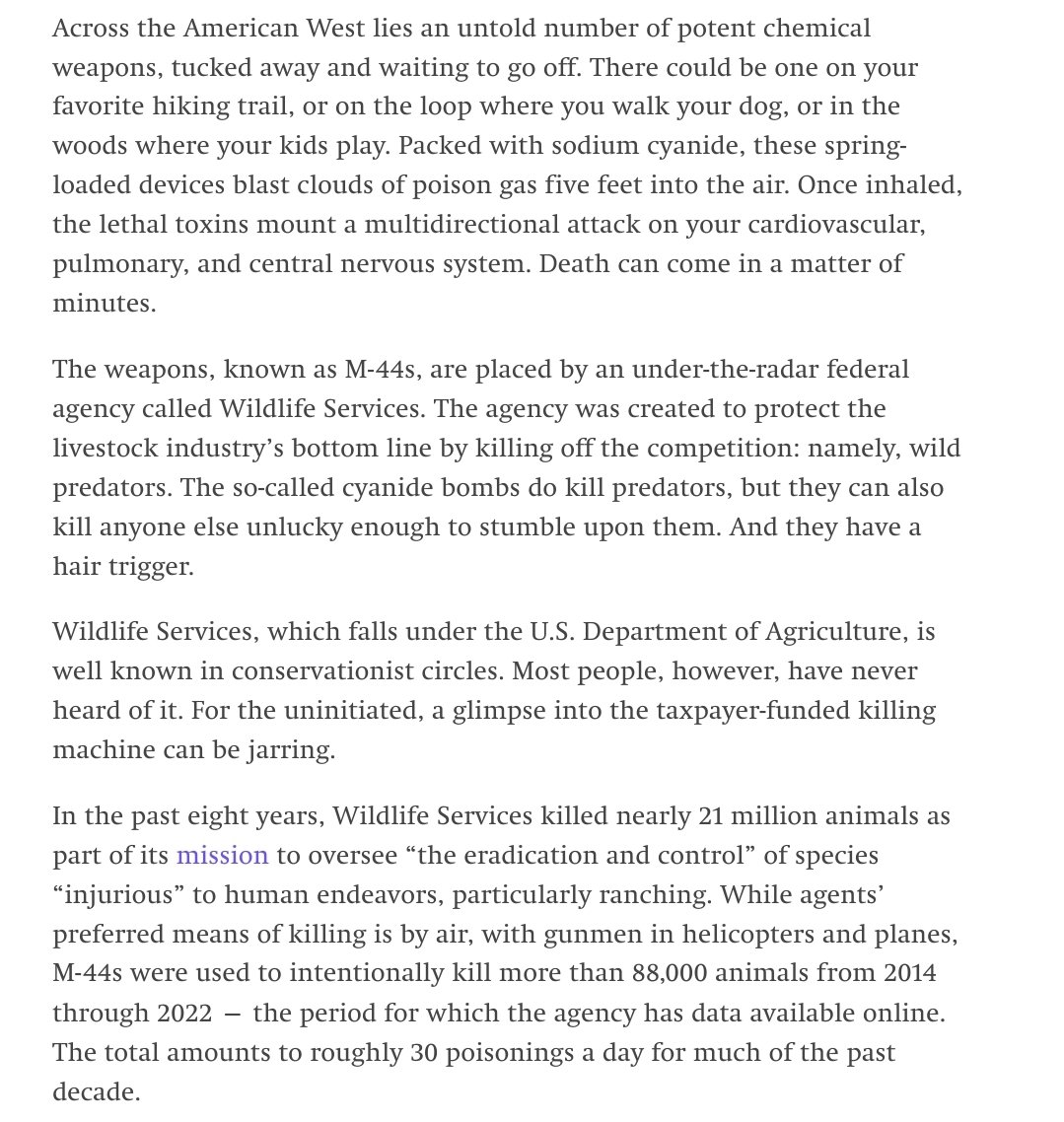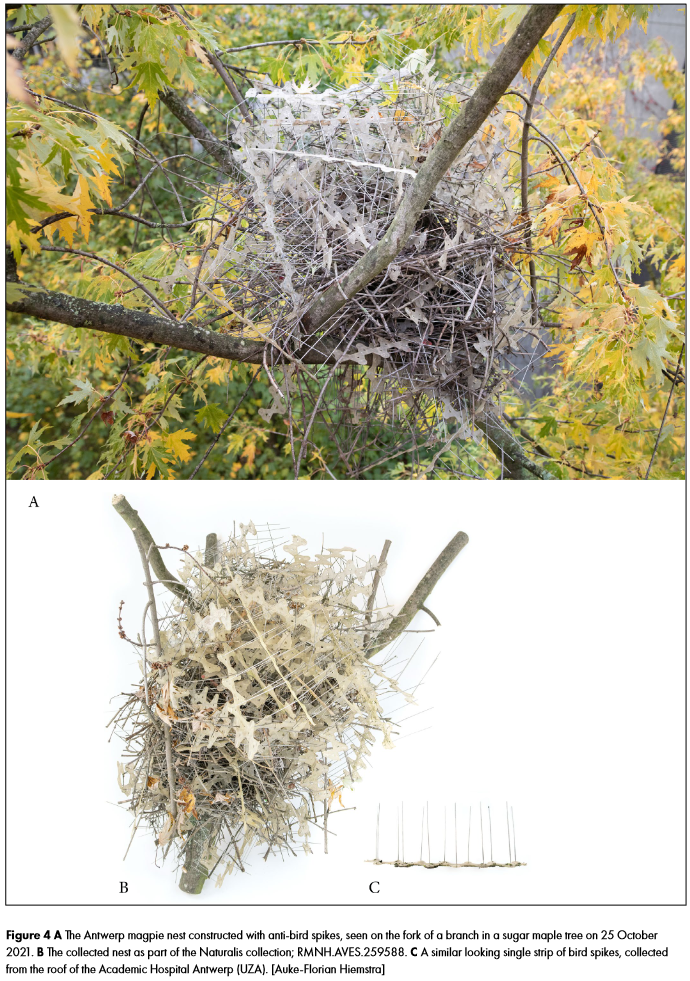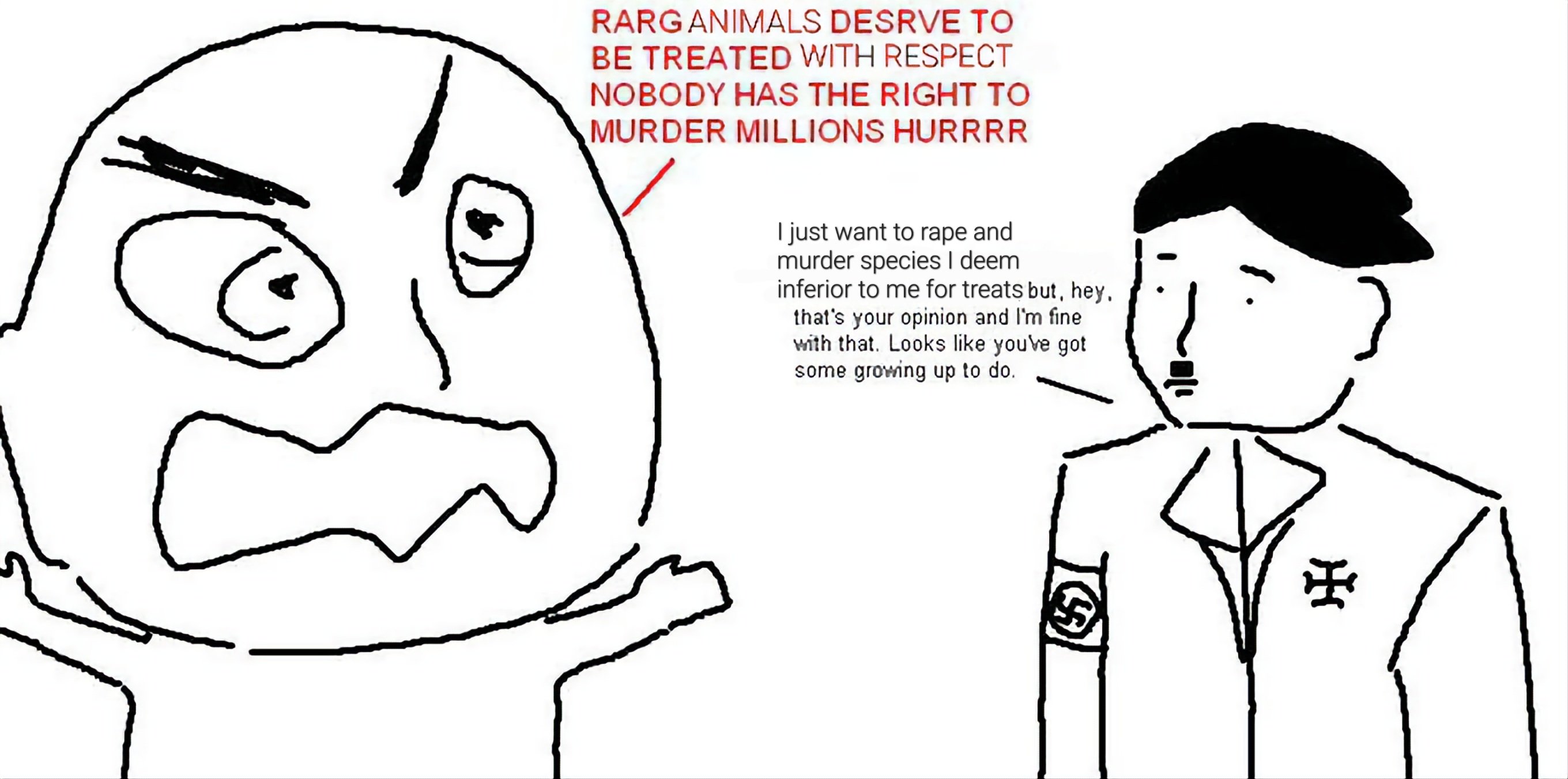Has anyone ever told you that it's ethical to shoot someone because otherwise, that person might suffer? Hunters are always telling us that they're actually helping deer by murdering them, because there's just so many deer, some of them might starve. It's not very convincing logic. It certainly wouldn't fly if we proposed solving human "overpopulation" through murder. But let's set aside the blatant speciesism for a moment and see whether it's even true that deer are overpopulated and if murder is the best solution if they are.
Hunters materially profit off the bodies of deer. Whether or not it's in the deers' best interest to get murdered, it's definitely in the hunter's best interest to be able to exploit and murder deer year after year.
To that end, deer populations are artificially inflated by deer breeding programs which are paid for by hunting licenses. They breed the deer and "manage" the land (like clearcutting forests, planting deer-preferred plants and requiring tenant farmers to leave a certain amount of their crops unharvested in order to feed the deer, creating the edge habitat that is preferred by deer and also outright feeding the deer) so that the populations increase so that there's always enough stock to hunt.
The reality is that there are thousands of “state game farms” across the country artificially breeding animals like deer and pheasants, quail and partridges in the hundreds of thousands and releasing them into hunting ranges. In Wisconsin alone, the state currently registers 372 “deer farms,” according to the Wisconsin Department of Agriculture, Trade and Consumer Protection. And when a disease outbreak occurs on these farms, entire herds are “depopulated.”
Some even claim that a substantial chunk of their funding comes directly from hunting licenses:
https://www.wildlife.state.nh.us/funding/charts.html
http://files.dnr.state.mn.us/aboutdnr/budget/bottom_line/budget.pdf
And the amount of federal funding they get is based off of license sales, too:
The Secretary determines how much to give to each state based on a formula that takes into account both the area of the state and its number of licensed hunters.
https://en.wikipedia.org/wiki/Pittman%E2%80%93Robertson_Federal_Aid_in_Wildlife_Restoration_Act
Matt Hogan, executive vice president of the Association of Fish and Wildlife Agencies, pointed out, “Public support for hunting and fishing is crucial for conservation efforts. State fish and wildlife agencies have been and continue to be funded in large part by the contributions of sportsmen and women through license sales and excise tax payments on hunting and fishing equipment. To put it simply, without hunters and anglers, state fish and wildlife agencies would not be able to do their job conserving and managing wildlife for all Americans to enjoy.”
https://web.archive.org/web/20070615231714/http://www.responsivemanagement.com/download/news/newsrls_09_06.pdf
The whole point of our agencies is to conserve enough deer to hunt. They don't hide that they maintain a high population on purpose so that there can always be hunting seasons in perpetuity. They're conserving hunting stock. They're "managing" non-human populations so we don't run out of stock. We're certainly not doing this for the benefit of the deer as sentient individuals who deserve not to suffer; we're doing this because they are completely objectified as resources for our consumption.
An optimum population of deer balances positive demands (e.g., recreational hunting and viewing) with negative demands (e.g., agricultural and ornamental plant damage, vehicle collisions, ecosystem impacts). Despite damage caused by deer, Virginia’s white-tailed deer represent a beneficial economic and social resource.
https://dwr.virginia.gov/wildlife/deer/deer-management-program
In fact, "conservation" in North American is centered entirely on exploitation of resources, not consideration for sentient individuals nor even preservation of species, which is why game animals are bred and bolstered yet predators and other non-useful animals are murdered and driven out.
https://www.fws.gov/hunting/north-american-model-of-wildlife-conservation.html
"Professor Thomas Serfass, Frostburg State University, Maryland, chairman of their department of natural resources and biology, told Thuermer: “I would describe the North American Model as incomplete.”
Hunter control depends on it being incomplete. One of the huge elements missing is contributions of federal land management agencies. “Setting land aside in the public domain in perpetuity is probably the most substantive thing we do for wildlife conservation," says the professor.
Thuermer quotes study co-author Molde as saying, “What about this public lands argument. Holy Toledo, that’s a huge subsidy to hunters.”
We, the 94 percent non-hunter public, pay for the lands and services, but are told that hunters have all the rights to destroy our wildlife. We pay — they have the only say. Seems fair to them.
The study's authors begin: “With increased awareness and interest of the general (non-consumptive) public in controversial wildlife management issues such as fur trapping, predator control, trophy hunting, coyote killing contests and wolf reintroduction, a debate is before us as to whether the general public is or should be afforded a proper voice in wildlife management decisions.
“Sportsmen favor the current system, which places a heavy emphasis on their interests through favorable composition of wildlife commissions and a continued emphasis on ungulate management. Non-human predators (wolves, mountain lions, coyotes, ravens and others) are disfavored by wildlife managers at all levels as competition for sportsmen and are treated as second-class citizens of the animal kingdom. Sportsmen suggest this bias is justified because ‘sportsmen pay for wildlife,’ a refrain heard repeatedly when these matters are discussed. Agency personnel and policy foster this belief as well.”
https://madison.com/ct/columnist/patricia-randolph-s-madravenspeak-non-hunters-should-claim-rights-to/article_1eeaf0bf-8c11-5c5f-835b-30e73edc8890.html


